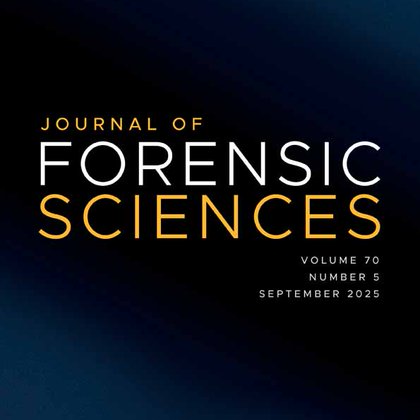
Dr J Kenyon
@jon_kenyon1
Followers
173
Following
797
Media
19
Statuses
311
Joined July 2011
My latest study with Dr Jens Binder and @BeallBaker has just been published on Internet use by convicted extremists in England and Wales based on 437 cases, informed by closed source data (risk reports).
gov.uk
This report presents findings from a quantitative study exploring the role of the Internet in radicalisation and offending of 437 convicted extremists in England and Wales.
3
11
19
My latest entitled: Leaving Terrorism Behind: the Healthy Identity Intervention Model of Change is now available on @ResearchGate:
researchgate.net
PDF | Providing rehabilitation for individuals who commit terrorist offences presents challenges. These challenges include the varied and complex... | Find, read and cite all the research you need on...
0
0
0
🚨 Now Published: The Extremism Risk Guidance – Revised (ERG-R). After over a decade of guiding terrorism risk assessments in England and Wales, the ERG22+ framework has been comprehensively updated by the HMPPS CT-ARC. Read the full technical report:
onlinelibrary.wiley.com
The Extremism Risk Guidance-Revised (ERG-R) updates and expands the ERG22+ framework, which has guided terrorism risk assessment in prison and probation across England and Wales since 2011. Develop...
1
4
6
How does online activity shape real-world terrorist threats? My latest research with Dr Sandy Schumann and Dr Jens Binder uncovers three distinct patterns of internet use linked to terrorism - some far more tied to attack planning than others. https://t.co/G0YEICw2eT
0
0
0
My latest piece on measuring change in terrorist engagement, in 20th issue of CREST Security Review (CSR). Co-authored with Dr Sian Watson. Includes why measuring change matters, key challenges and what authentic and sustainable change looks like
crestresearch.ac.uk
Changes in risk and protective factors can signal disengagement, enabling risk management resources to be allocated where they are needed most.
0
0
0
@GinaAVale @hannah1_rose my latest article may be of interest to your ongoing childhood innocence project. This study uses closed source risk assessment data to explore differences between younger people and older age groups in convicted terrorist population in England & Wales.
0
0
1
Against a backdrop of an increasingly younger terrorist cohort within His Majesty’s Prison and Probation Service, my latest paper explores the relationship between age and various Extremism Risk Guidance assessment outcomes. https://t.co/zCZ89SFiaL
3
4
9
Now THAT is what a win feels like at the pound!!!
1
8
52
So proud of colleagues Lianne Murphy and Rachel Frankham for their first publication on current approaches within HMPPS to risk assessment and management of those at risk of being drawn into terrorism, including key considerations and challenges.
lnkd.in
This link will take you to a page that’s not on LinkedIn
0
1
1
1
3
35
Link to The Internet and radicalisation pathways research presentation recorded for the Terrorism and Social Media Conference (TASM) in June 2024: https://t.co/RWp4kMSP6X via @YouTube Full report:
0
0
0
My latest opinion piece co-authored with Dr Jens Binder suggesting that in order to protect Internet users from radicalisation, we should turn them into more literate Internet users. https://t.co/0hTItdeFAx
ctinsight.net
Online content fit for radicalisation has been described in many ways, and mis- and/or dis-information are labels designed to give some structure to the debate.
0
0
1
https://t.co/meXMbeuQQt An excellent study of nearly 500 offenders in the UK with findings suggesting that the Internet has become increasingly prominent in radicalisation pathways and offending over time for convicted extremists in England and Wales. We found the same w ISIS.
0
1
1
Did somebody order a FOUR POINT WEEKEND
3
16
83
What do we know about those who perpetrate violent terrorist acts? Are there differences between those who act alone, in pairs or in groups? See our latest study based on 143 convicted terrorists, informed by closed source data, published today:
psycnet.apa.org
Three types of terrorist attackers, sentenced between 1983 and 2021, were compared using a sample of 143 individuals convicted of extremist offenses in England and Wales. Attackers were classified as...
1
4
10
Great to see my colleague Zainab‘s latest work here - looking forward to the full report
🚨 NEW RESOURCES 📝 A Systematic Review of Neurodivergence, Vulnerability, and Risk in the Context of Violent Extremism ✏️ Authors: @Nadine_Salman & Dr Zainab Al-Attar ⬇️ Read, download & share: https://t.co/rtHNJsxEQs
0
0
0










